Dublin (Ireland)
Cruise Port schedule, live map, terminals, news
Region
Ireland - UK - British Isles
Local Time
2025-04-08 08:53
 49°F
49°F 9.2°C

 Very Light
Very Light1.1 m/s
 56 °F / 14 °C
56 °F / 14 °C 42 °F / 6 °C
Port Dublin cruise ship schedule shows timetable calendars of all arrival and departure dates by month. The port's schedule lists all ships (in links) with cruises going to or leaving from Dublin, Ireland. To see the full itineraries (ports of call dates and arrival / departure times) and their lowest rates – just follow the corresponding ship-link.
| Day | Ship | Arrival | Departure |
|---|---|---|---|
| 27 March, 2025 Thursday |
Dublin is Ireland's largest port and the country's capital city, with population around 0,6 million (urban ~1,2 million, metro over 1,4 million). It is located on the east coast (facing the Irish Sea) at the head of a big crescent-shaped bay, sheltered on its southern side by the Wicklow Mountains. The city occupies a flat site, bisected west to east by River Liffey.
Greater Dublin groups Dublin City and 6 counties (South Dublin, Dun Laoghaire-Rathdown, Fingal, Meath, Kildare, Wicklow), with combined population over 1,9 million.
Dun Laoghaire is an alternative cruise port to Dublin, located just ~7 mi / 12 km (around 30 min drive distance) to the southeast, along the coastal road R118.
Many of the historic edifices of Dublin are in the old section of the town, south of Liffey such as Dublin Castle (16th-century), Cathedral of Christ Church (11th-century), Saint Patrick's Cathedral (12th-century). Among other striking buildings are Trinity College (16th-century), the Bank of Ireland building (1794, and the old seat of Irish Parliament), Customs House (18th-century), Four Courts (seat of high courts of Ireland), Leinster House (present seat of the national parliament). One of the world's greatest city parks - Phoenix Park, contains Dublin Zoo (the world's 3rd-oldest public zoo/1831-opened). The city is also renowned for its public houses, among which is Hole-In-The-Wall (Europe's longest, at 100 m / 328 ft).
Prominent among the city's many museums and galleries are the National Museum of Ireland, the Natural History Museum, Civic Museum, Writers' Museum, National Gallery, Kilmainham Gaol (former prison in the Kilmainham suburb), the Irish Museum of Modern Art, the Municipal Gallery of Modern Art.
Dublin cruise port
In July 2015, Dublin Port Company (DPC/port authority) was granted permission for the "Alexandra Basin Redevelopment" project. By this project was transformed the Port's infrastructure to allow the docking of larger-sized cruise vessels by lengthening the berths and dredging/deepening. The project included approx 3 km (2 mi) of the Port’s 7 km (4 mi) berthing line. Dredging works also resulted in max draft 10 m (33 ft) in the entrance channel.
The project's completion was scheduled for 2020, with total cost ~EUR 230 million. The decision came following the Port's report on cargo shipping volumes in 2015. This was a record year, with imports and exports volume increase of 5% (during 2015-H1/first half of the year). Imports were growing at 5,6% as the UK economy started to improve.
Port Dublin (locode IEDUB) is Ireland's largest cargo (and passenger/cruise) port. In October 2014, the EU funded the seaport with EUR 2,4 million toward the costs of this project. In June 2015, the European Union additionally funded the company with EUR 22,8 million for the construction works. And finally, the European Investment Bank gave EUR 100 million as long-term debt finance. In 2015, the Port's ferry passenger traffic was also increased (with 4,8% over 2014) on ferry routes between Dublin and France and UK.
In 2015, the cruise port reported a record year with 98 ship calls and 200,000+ passengers. Among the largest vessels were Royal Princess, Celebrity Silhouette, MSC Splendida (LOA length up to 333 m / 1158 ft). Following the port redevelopment project, larger cruise liners now can safely turn within the Alexandra Basin and berth close to East Link Bridge. Other port improvements included a new high-capacity firewater pump, Alexandra Quay Container Terminal, new car terminal (for imported vehicles).
During season 2016, the Port handled 103 cruise ship calls and 180,000+ passengers. In 2017, the number of calls grew to 128, with handled ~210,000 tourists.
During season 2018, Celebrity Cruises became the first major cruise shipping company to homeport a vessel here. Celebrity Eclipse (LOA length 313 m / 1027 ft, max capacity 3400 passengers) had scheduled 5 roundtrips from Dublin (booked departures April 30, and May 10, 20, 29/ from Ocean Pier 33 terminal) visiting ports in Norway, Iceland, and the UK. Celebrity attracted 14,000+ cruisers to these voyages. The Eclipse ship's homeporting resulted in ~EUR 6 million economic impact on the city and its surrounding region.
In late-March 2019, Port Dublin announced cruise shipping restrictions for the period 2021-2028. Industry's worth for the port city is estimated EUR 50 million. However, Port Dublin decided to reduce the number of visiting passenger ships (from 2021) allowing only two large cruise ships per week (summer season), only one large liner per week (winter season) and no turnarounds (homeporting operations with roundtrips).
- Dublin Port Company explained its decision with the increased cargo volumes (over 1/3 since 2012) leading to tighter berthing space at the cruise port.
- Due to the planned EUR 1 billion capital works (between 2019-2028), it was introduced a better-balanced berth allocation system for seaport's year-round cargo shipping services and the seasonal cruise vessels.
- In 2018, the cruise port handled 150 ship calls, rising to 163 in 2019.
- From 2021, the port schedules only 80 cruise ship calls/berths annually.
"Port Dublin Masterplan 2040" includes the construction of new cruise berths - based on co-financing and long-term financial guarantees from major cruise ship companies.
Port Dublin
~4/5 of the Port’s cargo volumes are currently based on Ro-Ro (Roll-On-Roll-Off) and Lo-Lo (Lift-On-Lift-Off) vessels.
For 2017-Q3, Dublin Port Company (authority) reported 4,2% growth in general shipping trade. Overall trade volumes grew by 30,1% (2012-2017), with a 5th successive record year. Port's Q3 trade volumes grew by 3,1% (2013), 7,2% (2014), 5,8% (2015), 6,8% (2016), 4,2% (2017).
Total GT (gross tonnage) volume (imports-exports)) for 2017-Q3 was 27,1 million tons, with total 5932 vessel calls in Q3 (9 months period). The increases (2017 over 2016) were:
- Imports (3,5%) - 16 million (15,4+ million)
- Exports (5,2%) - 11,2 M (10,6 M)
- Total volume (4,2%) - 27,1 M (26 M)
- Ro-Ro vessels (5,3%) - 736,462 (699,361) - on the routes between Ireland and UK
- Container ships (4,1% in TEU-containers) - 515,718 (495,511 TEUs)
- Ferries (2,4% in ferry passengers) 1,496025 million (1,460585 M)
- Ferried tourist vehicles (2,7%) - 411,921 (400,949)
- Cruise ships (23,3%) - 127 vessels (103 vessels)
The report showed tourist shipping (ferry and cruise) volumes with strong growth of 2,4% (ferries) and an impressive 23,3% in cruise liners (record year). Currently, the largest homeported in Dublin Ro-Ro ship is MV Celine (2017-built, IMO 9789233, capacity 8000 lanemetres / 600+ freight vehicles) operating on the routes Dublin-Zeebrugge Belgium and Dublin-Rotterdam Holland.
In October 2017, the company Seatruck Ferries (one of the Irish Sea's largest freight ferry companies) celebrated 10 years of Dublin Port operations. Starting in 2007, its freight traffic volumes increased over 500% - from 3000 units (2007) to nearly 21000 units (2017). The company's ship Celtic Star operates 4x daily crossings to Liverpool and 1x daily service to Heysham (Lancashire, England).
In July 2018 was launched "Masterplan 2040 Reviewed 2018" - an update of the Port's development plan from 2012. Key changes were as follow:
- Port's development is now based on 3,3% average annual growth (changed from 2,5%).
- Port's max capacity in 2040 was increased to 77 million (changed from 60 million GT-tons).
- The option of increasing capacity by expanding the seaport eastwards (into Dublin Bay) was ruled out.
- The original masterplan included deepening / dredging to max draft 12 m (39 ft) - now changed to max draft 10 m (33 ft).
The project also included developing Dublin Inland Port (land area approx 44 hectares/109 acres) located 14 km (9 mi) from the seaport. Its facilities were scheduled for completion in 2019.
- Dublin Inland Port (~EUR 48 million / GBP 40,5M / USD 55,7M investment by DPC) was officially opened in November 2021.
- The Inland Port has direct access to the M50 (C-shaped orbital motorway) running from Dublin Port northward through Dublin Port Tunnel.
- As the first licensed operator was announced DFT-Dublin Ferryport Terminals (division of ICG-Irish Continental Group managing ferry and containership terminals). With DFT's 20-year concession, ICG's throughput TEU capacity was increased by 1/5.
Port statistics 2018
In October 2018, Dublin Port Company reported cargo shipping growth 4,7% (28,4 million GT tons) for 2018-Q3 (over 2017-Q3), with imports growth 6% and exports growth 3%.
- Most of the volumes (82%) were RoRo ships (+4,3%, to 768K trailers) and LoLo ships (+5,5%, to 544K TEUs).
- New vehicles import grew 6% (to 78K).
- Solid bulk cargo increased by 15,9% (to 1,7 million tons).
- Passenger traffic increased to 1,698760 million (+3,3%).
- Tourist vehicles decreased by 1,5% (405,907).
- Port Dublin handles most of Ireland’s liquid fuels imports (petrol, diesel, aviation fuel). Liquid bulk volumes grew by 9,3% (to 3,4 million tons).
In FY2018 (fiscal year), the Port’s cargo volumes grew by 4,3% (over FY17) up to 38 million GT-tons, with overall growth 35,7% (over FY2013). In 2018 were invested EUR 93 million (in infrastructure developments) and for 2018 were planned EUR 147 million in further investments.
Next are listed some FY18 statistics:
- imports (+5,5%) up to 22,7 million GT-tons
- exports (+2,5%) up to 15,3 million GT-tons
- Containers plus freight trailers (82% of the Port's total cargo trade)
- Ro-Ro shipping (+4%) to 1,032 million wheeled cargo units
- Lo-Lo shipping (+4%) up to 726,000 TEU-containers
- Liquid bulk (+7,8%) up to 4,6 million tons (mainly petroleum products)
- Solid bulk (+16,8%) up to 2,4 million tons (mainly animal feeds and cereals)
- Ferry shipping (-1%) down to 1,828 million passengers, and 0,515 million vehicles (-1,2%) - both due to ferryboat issues
- Cruise shipping (+32%) up to 150 ship calls (127 in 2017)
- Average cruise vessel size (+10,6%) up to 50,085 GT-tons
Port statistics 2022
In 2022-H1 (first half), the Port's overall cargo volumes grew 10,1% (18,6M GT tons), the number of cargo ships increased by 150 (3694 over 2021-H1), the number of trailers and TEUs increased 7,6% (to 742,000). Imports increased 10,2% (11,2M GT), exports +9,9% (7,35M),
Bulk cargoes increased 20% (to 3,5M tonnes). Solid bulk (mainly animal feed) increased 10,7% (1,1M tonnes), Liquid Bulk +25,6% (2,35M tonnes). Petroleum imports increased 25,6% (2,3M tonnes). Trade vehicle imports decreased 3,6% (47,000) mainly due loss of lands given over to government/border control facilities following Brexit).
The Port's ferry traffic doubled (+225,3%) to 670,995 passengers (including HGV drivers), while tourist vehicles tripled (+316,5%) to 196,057 units.
Dublin cruise terminal
Smaller cruise ships Dublin dock into the city center, going up on Liffey River.
Large cruise ships in Dublin dock at Alexandra Quay ("Ocean Pier 33" / shown on both photos here. The cruise terminal is located in the port's industrial area. The quay is approx 2 km / 1 mi from downtown.
Most cruise lines offer shuttle bus service - usually at no charge. These free shuttles from the port go to Kildare Street. Regular transportation from the cruise port to downtown is provided by bus line 53.
The distance between the cruise ship terminal and the Luas (Light Rail Tram) stop at The Point is approx 1 mi / 2 km. Trams to the city run every 15 min. This tram stop is located close to the Wheel of Dublin (aka Revolver, a transportable Ferris wheel). Dublin Airport is located approx 6 mi / 10 km north of downtown.
Port Dun Laoghaire Harbour
If the cruise itinerary has Port Dublin listed as "Tendered", it means that disembarkation will be in Dun Laoghaire Harbour. This is a small suburban town, located approx 13 km / 8 mi from downtown Dublin.
- A free shuttle bus service is provided from the port to Dun Laoghaire's railway station. DART trains to Dublin run every 15 min (approx 45 min travel time). In downtown, passengers have 3 stations to leave the train - Pearse Street, Tara Street, and Connelly.
- In 2015 the harbour filed an application for a construction plan to build a new cruise ship berth. The new cruise facility will be able to handle vessels with LOA length up to 340 m (1115 ft) and around 400,000 passengers per year. The port's passenger volume for 2015 was around 100,000.
- The first cruise ship visit in Dun Laoghaire was in 2012. The estimated impact on the local economy is around GBP 27 million.
Dublin tours, shore excursions, hotels
City Tours and Shore Excursions
Clonmacnoise
- Accidents

Ferry services between Ireland and Wales disrupted by Storm Darragh damage
Several ferry crossings between Ireland and Wales have been canceled due to damage at Holyhead Port caused by Storm Darragh. Irish Ferries and Stena...
December 9, 2024 - Cruise Industry
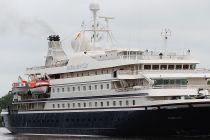
SeaDream Yacht Club expands presence in the British Isles with 2027 itineraries
SeaDream Yacht Club, renowned for its boutique yacht travel experiences, has announced an expanded presence in the British Isles for 2027. The new...
November 18, 2024 - Cruise Industry
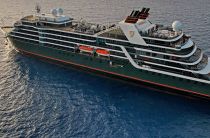
Seabourn's 2026-2027 expedition cruises - 24 new itineraries across 31 countries
The ultra-luxury expedition travel company Seabourn announced its 2026-2027 season, grouping 24 itineraries across 31 countries, including several...
November 2, 2024 - Cruise Industry
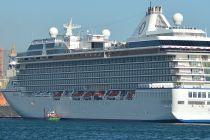
Oceania unveils 2025 Specialty Cruises featuring culinary legends
Oceania Cruises has unveiled its 2025 Specialty Cruises, offering an immersive blend of culinary excellence and cultural experiences at sea. These...
September 29, 2024 - Cruise Industry
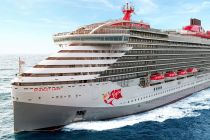
Virgin Voyages reignites 2025 Summer Season Pass for digital nomads at sea
Virgin Voyages has reintroduced its highly sought-after Summer Season Pass for 2025, offering an extended work-from-sea experience for travelers...
September 28, 2024 - Cruise Industry
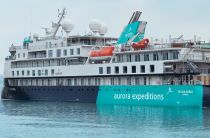
Aurora Expeditions opens 2026 itineraries with Solar Eclipse cruises and new solo cabins
Aurora Expeditions, renowned for its responsible small-ship exploration, has unveiled its 2026 Arctic and Beyond season, expanding its offerings to...
September 9, 2024 - Cruise Industry
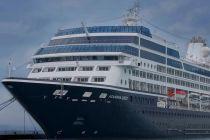
Azamara unveils 2026 Summer itineraries with Solar Eclipse cruises and new destinations
Azamara Cruises, a leader in small-ship cruising and Destination Immersion experiences, has announced its 2026 summer sailings, featuring 77 new...
September 8, 2024 - Cruise Industry
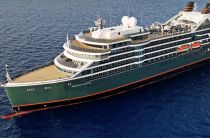
Seabourn unveils exclusive The Collection cruises with shoreside experiences
The ultra-premium travel brand Seabourn is introducing "The Collection," a series of meticulously crafted voyages also offering unparalleled...
April 7, 2024 - Cruise Industry
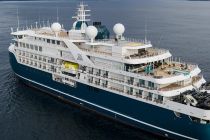
Swan Hellenic unveils cultural expedition cruises across British Isles and Iceland
Swan Hellenic, renowned for its cultural expedition cruises, unveils 3 distinctive itineraries across the British Isles and Iceland, offering curious...
February 25, 2024 - Cruise Industry
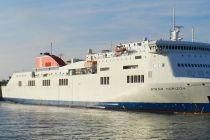
Stena Line boosts freight capacities with new Dublin-Birkenhead route amid record volumes
Stena Line, the Swedish ferry operator, has officially launched its new freight service from Dublin (Ireland) to Birkenhead (England). This addition...
February 21, 2024 - show more news
